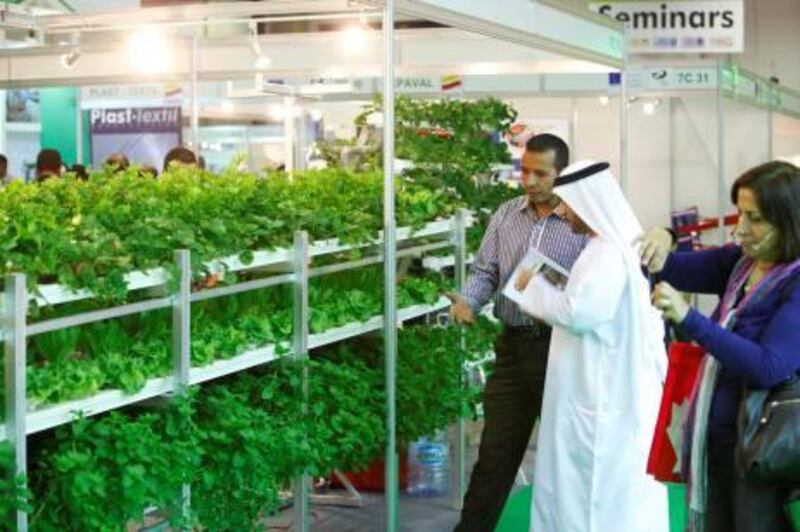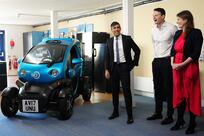DUBAI // Greenhouses could soon be a thing of the past for farmers. Instead, crops will be grown on the roofs of office blocks and in vertical stacks, say agriculture experts.
Cultivation under glass is a problem in a hot climate because keeping greenhouses cool in the summer uses too much energy.
Roof farming and stacks - known as vertical farming - could produce better food, while using far less water.
"Although greenhouses produce throughout the year, creating a suitable growing climate requires a significant amount of energy," said Professor Abdulaziz Alharbi, a professor of horticulture at King Saud University in Saudi Arabia.
The fan and pad evaporative cooling system used in desert climates consumes more than 8,000 litres of water per square metre a year - "not sustainable in a place where water is limited", he said.
Prof Alharbi was speaking at the Agribusiness Outlook Forum in Dubai yesterday.
With growing demand for water in the UAE, coupled with a sharp decline in available resources, there is an urge for more sustainable ways of growing fruit and vegetables.
"A change is needed in the direction of a sector that efficiently produces healthy products of high quality with low water and energy usage," said Prof Alharbi.
He said soil-less farming could save more than double the water used in greenhouses. "We have to increase water efficiency in agriculture in the GCC," he said.
One solution would be to combine hydroponics - growing plants in water - and aeroponics - hanging them in a misty environment in tall buildings.
"The UAE should really consider vertical farming because the climate is getting hotter here," said Shameer Babu, head of business development at GulfTech Group in Oman. Keeping greenhouses cool will not be an option for long.
"There isn't a lot of arable land here. We are wasting a lot of our resources and this can help because it is a soil-less system."
One option for replacing greenhouses is farming on top of buildings, using wastewater from apartments for irrigation.
"The Government should install a greywater purification system to be able to use the wastewater from the bathrooms and kitchens," said Mr Babu. "By using the existing infrastructure, we can save a lot of space and water."
So far, the new system has not been used in any Middle Eastern country, but officials hope they will catch on with the opening of a centre intended to teach farmers about new agricultural technologies.
The Environment Agency - Abu Dhabi has started work with a Dutch university to build a protected agricultural centre in the capital.
Dutch consultants will teach techniques such as hydroponics to the centre's local employees, who will then in turn transfer their knowledge oto the farmers.
"We want to encourage farmers and growers to use new technologies in the future for efficient water use and to maximise their production," said Dr Mohamed Dawoud, the manager of water resources at the agency.
The centre will offer free training to all farmers. If the Government approves the idea - as it is due to two weeks from now - the centre could be up and running by the end of next year.






